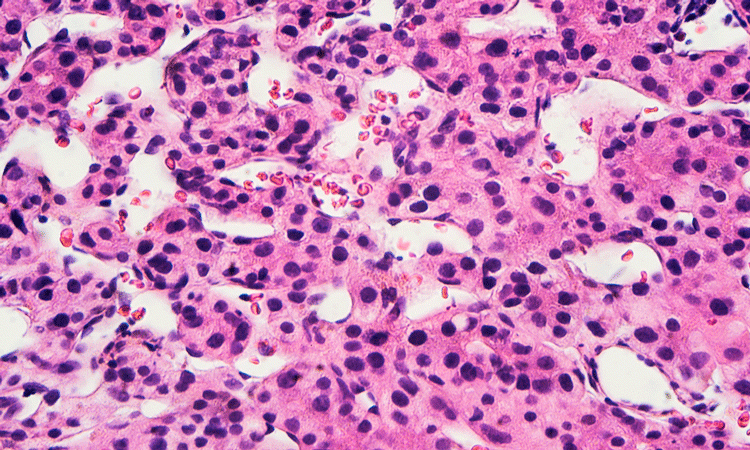Potential peptide drug could treat liver cancer effectively
Posted: 2 August 2018 | Drug Target Review | No comments yet
Researchers have discovered that FFW and Sorafenib used together could reduce the growth of Sorafenib resistant hepatocellular carcinoma tumours…


A team of researchers have developed a novel peptide drug, FFW, which could stop the development of hepatocellular carcinoma (HCC), known as primary liver cancer.
The researchers, led by scientists from the Cancer Institute of Singapore (CSI Singapore) at the National University of Singapore (NUS), included an international team from Brigham and Women’s Hospital at Harvard Medical School, the Department of Biological Science under the NUS Faculty of Science, along with the Agency for Science, Technology and Research.
Since it is a fast growing cancer, HCC patients typically live 11 months after diagnosis. HCC accounts for more than 90 percent of all liver cancers and is a major public health problem in the Asia Pacific Region. After diagnosis, the initial treatment is Sorafenib, however it has many adverse side effects, and only prolongs life for three months.
Drug Target Review has just announced the launch of its NEW and EXCLUSIVE report examining the evolution of AI and informatics in drug discovery and development.
In this 63 page in-depth report, experts and researchers explore the key benefits of AI and informatics processes, reveal where the challenges lie for the implementation of AI and how they see the use of these technologies streamlining workflows in the future.
Also featured are exclusive interviews with leading scientists from AstraZeneca, Auransa, PolarisQB and Chalmers University of Technology.
Due to the late diagnosis and the lack of a more suitable treatment, HCC has become the second leading cause of cancer related deaths worldwide.
A protein related to tumour growth, SALL4, has been widely studied as a prognosis biomarker and drug target for HCC and other cancers. Ordinarily, it is present in a growing foetus, but becomes inactive in adult tissue. In HCC, this protein is activated and leads to the growth of tumours, however, it has previously been labelled as ‘undruggable’.
When target molecules are investigated, a ‘pocket’ is usually required on the molecule where the drug molecule would reside and bring about the desired effects.
“In our earlier research, we found out that the SALL4 protein works with another protein, NuRD, to form a partnership that is crucial for the development of cancers such as HCC. Instead of looking for ‘pockets’ on SALL4, our research team designed a bio-molecule to block the interaction between SALL4 and NuRD. In our lab experiments, blocking this interaction has led to tumour cell death and reduced movement of tumour cells,” explained Professor Daniel Tenen, Director of CSI Singapore.
The team discovered that FFW and Sorafenib used together could reduce the growth of Sorafenib resistant HCC tumours.
Despite most drugs being small molecules, the team mentioned that a well designed peptide drug possesses higher selectivity over large binding surfaces and has a safer toxicity profile in comparison.
Dr Liu Bee Hui, Research Fellow at CSI Singapore, said, “Based on the information we gained from structural and global gene expression, we are continuing our work on this peptide and other peptides with similar structures, with the aim of eventually being able to make them into clinical grade drugs for the benefit of patients.”
“An ideal cancer target should be cancer-specific and non-toxic to normal tissues. To this end, we are collaborating to find a missing link that can cure cancer and restore normal cell function,” explained Associate Professor Li Chai from Brigham and Women’s Hospital at Harvard Medical School.
“In our latest work, the research team has also demonstrated an effective strategy to accurately target oncogenes previously considered undruggable. Moving forward, we hope to investigate how the targeting of these protein interactions might pan out in other cancer types,” Prof Tenen said.
The results of the study were published in Proceedings of the National Academy of Sciences of the United States (PNAS).
Related topics
Disease research, Drug Development, Drug Discovery, Drug Discovery Processes, Drug Leads, Drug Targets, Peptide therapeutics, Research & Development
Related conditions
HCC, Liver cancer
Related organisations
Brigham and Women’s Hospital at Harvard Medical School, Cancer Institute of Singapore, National University of Singapore, NUS Faculty of Science
Related people
Associate Professor Li Chai, Dr Liu Bee Hui, Professor Daniel Tenen



